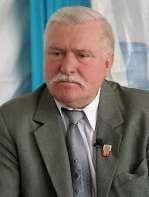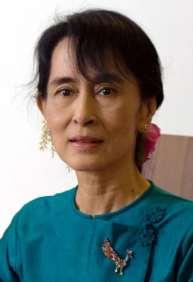TODAY’S ANALYSIS (09 August 2024)
TOPICS TO BE COVERED

• WAQF (AMENDMENT) BILL, 2024
• NOBEL LAUREATES WHO LED THEIR COUNTRIES
• MCQs
+918988885050
+918988886060


• WAQF (AMENDMENT) BILL, 2024
• NOBEL LAUREATES WHO LED THEIR COUNTRIES
• MCQs
+918988885050
+918988886060
The government on Thursday referred the Waqf (Amendment) Bill, 2024, to a Joint Committee of Parliament. The tabling of the Bill by Union Minister of Minority Affairs
Kiren Rijiju was met with strong criticism from the Opposition parties who said the proposed law was “unconstitutional”, “anti-minority”, and “divisive”
THE EXISTING ACT:
The Bill seeks to amend the 1995 Waqf Act, and proposes sweeping changes to how Waqfs are governed and regulated.
A Waqf is personal property given by Muslims for a specific purpose
• Religious
• Charitable or

• For private purposes.
WHO WILL BE THE OWNER OF THE DONATED PROPERTY?
While the beneficiaries of the property can be different, the ownership of the property is implied to be with God.
+918988885050
+918988886060
A Waqf can be formed through a deed or instrument or orally, or a property can be deemed to be Waqf if it has been used for religious or charitable purposes for a long period of time.
Once a property is declared as Waqf, its character changes forever, and cannot be reversed.
Waqf properties in India are governed by the Waqf Act, 1995.
• Muslim Waqf Validating Act, 1913
• The Mussalman Wakf Act, 1923.
• After Independence, the Central Waqf Act, 1954, was enacted.


In 2013, the law was amended to prescribe imprisonment of up to two years for encroachment on Waqf property, and to explicitly prohibit the sale, gift, exchange, mortgage, or transfer of Waqf property.

+918988885050
+918988886060
• The Waqf law provides for the appointment of a survey commissioner who maintains a list of all Waqf properties by making local investigations, summoning witnesses, and requisitioning public documents.
• A Waqf property is managed by a mutawalli (caretaker), who acts as a superviser.
o Waqf properties are managed in a way that is similar to how properties under Trusts are managed under the Indian Trusts Act, 1882.
• The Wakf Act states that any dispute related to Waqf properties will be decided by a Waqf Tribunal.
o The Tribunal is constituted by the state government,comprises three members
▪ A chairperson who is a state judicial officer not below the rank of a District, Sessions or Civil Judge, Class I;
▪ An officer from the state civil services; and
▪ A person with knowledge of Muslim law and jurisprudence.
• The law also has provisions for the constitution and appointment of Waqf Boards, Waqf Councils, Chief Executive Officers for Waqf Boards in the states.

+918988885050
+918988886060
o The CEOs and parliamentarians who are part of the Waqf Boards must be from the Muslim community.
• A Waqf Board is a body under the state government, which works as a custodian for Waqf properties across the state.
In most states, there are separate Waqf Boards for the Shia and Sunni communities. Almost all prominent mosques in the country are Waqf properties and are under the Waqf Board of the state.
A Waqf Board is having the following composition:
• Headed by a chairperson.
• One or two nominees from the state government,
• Muslim legislators and parliamentarians
• Muslim members of the state Bar Council.
• Recognised scholars of Islamic theology, and
• Mutawallis of Waqfs with an annual income of Rs 1 lakh and above.
+918988885050
+918988886060
A Waqf Board has powers under the law to administer the property and take measures for the recovery of lost properties of any Waqf, and to sanction any transfer of immovable property of a Waqf by way of sale, gift, mortgage, exchange, or lease. However, the sanction shall not be given unless at least two thirds of the members of the Waqf Board vote in favour of such a transaction.
The Bill seeks to substantially alter the existing framework of Waqf law. The proposed amendment shifts the power of governing Waqfs from the Boards and Tribunals, which are largely run by the Muslim community, to the state governments.
THE CHANGES:

• The Bill seeks to change the name of the parent Act from the Waqf Act, 1995, to the Unified Waqf Management, Empowerment, Efficiency and Development Act, 1995
• The proposed Bill would also give the central government the power to “direct the audit of any Waqf at any time by an auditor appointed by the Comptroller and Auditor-General of India, or by any officer designated by the Central Government for that purpose”.

+918988885050
+918988886060
• It seeks to introduce three new provisions in the Act:
o Section 3A, which states that no person shall create a Waqf unless he is the lawful owner of the property and competent to transfer or dedicate such property. This provision appears to address the assumption that land that does not belong to an individual is not given as Waqf.
o Section 3C(1), which states that “government property identified or declared as Waqf property, before or after the commencement of this Act, shall not be deemed to be a Waqf property”.
o Section 3C(2), which empowers the government to decide if a property given as Waqf is government land. “If any question arises as to whether any such property is a Government property, the same shall be referred to the Collector having jurisdiction who shall make such inquiry as he deems fit, and determine whether such property is a Government property or not and submit his report to the State Government,”
This provision essentially means that the Collector and not the Waqf Tribunal will make this determination in case of a dispute. The proposed clause also states that such property “shall not be treated as Waqf property till the Collector submits his report”.

+918988885050
+918988886060
• The Bill also redefines how a property is deemed to be in the possession of Waqf. as it seeks to remove the concept of “Waqf by use”.
o Under the 1995 law, a property by continuous and uninterrupted use by Muslims for religious purposes is “deemed” to be a Waqf property.
▪ This means that a property can be deemed to be a Waqf through use even if the original declaration is suspect. Several mosques and graveyards could fall in this category.
o The proposed Bill, by omitting the provisions relating to “Waqf by use,” makes a Waqf property suspect in the absence of a valid Waqf Nama.
• The Bill proposes to change the composition of Waqf Boards in states. It proposes to allow even a non-Muslim CEO, and gives the power to the state government to have at least two non-Muslim members to the state Waqf Boards.
+918988885050
+918988886060

Economist Muhammad Yunus, who won the Nobel Peace Prize in 2006, arrived in Dhaka.
He is set to take oath as the head of Bangladesh’s interim government.

Yunus, however, will not be the first Nobel laureate to later lead their country. Five others have preceded him.
Pearson was the Canadian prime minister from 1963 to 1968, and a leader of the Liberal Party.
NOBEL PRIZE: Pearson won the Nobel Peace Prize in 1957, for his role in resolving the Suez Crisis.

+918988885050
+918988886060
Wałęsa served as Poland’s president from 1990-95, the first since 1926 to be democratically elected.
NOBEL PRIZE: He won the Nobel Peace Prize in 1983 “for nonviolent struggle for free trade unions and human rights in Poland”.
Suu Kyi served as the State Counsellor of Myanmar, the defacto head of the government equivalent to a prime minister, 2016 to 2021 after leading Myanmar’s transition from military rule to partial democracy
NOBEL PRIZE: She had won the Nobel Peace Prize in 1991 “for her non-violent struggle for democracy and human rights” in Myanmar.



Mandela served as the president of South Africa from 1994 to 1999. He was the first Black president of the country, elected in its first ever multi-racial elections.
+918988885050
+918988886060

NOBEL PRIZE: He was awarded the Nobel Peace Prize in 1993, jointly with then President Frederik Willem de Klerk, “for their work for the peaceful termination of the apartheid regime, and for laying the foundations for a new democratic South Africa
Ramos-Horta has been the president of East Timor since 2022. He previously held the position from 2007 to 2012, and the prime ministership from 2006 to 2007.
NOBEL PRIZE:


He won the Nobel Peace Prize in 1996 along with Carlos Filipe Ximenes Belo, for working “towards a just and peaceful solution to the conflict in East Timor”.
1

+918988885050
+918988886060
Consider the following statements and mark the correct one:
1. Waqf properties are donated properties.
2. Waqf Boards are statutory bodies responsible for governance of Waqf Properties.
(A) Only 1
(B) B: Only 2
(C) Both 1 & 2
(D) Neither 1 nor 2
Ans. (C)
2. Who of the following cannot be a member of the Waqf Board as per the Waqf Act 995?
(A) A non muslim
(B) An MP
(C) MLA
(D) A member of the state Bar Council.
Ans. (A)

+918988885050
+918988886060
3. Which of the following are the provisions in the Waqf (Amendment) Bill, 2024?
1. CAG can audit any Waqf Property/Board.
2. The District Collector is empowered to conduct an enquiry on the legality of the property which has been declared as a Waqf property.
(A) Only 1
(B) Only 2
(C) Both 1 & 2
(D) Neither 1 nor 2
Ans. (C)
4. Which of the following have won a Nobel Prize for Economics and led/leading their country?
(A) Nelson Mandela
(B) Aung San Suu Kyi
(C) Mohammad Yunus
(D) None of the above
Ans. (D)

+918988885050
+918988886060
5 Consider the following pairs and mark how many of them are correctly matched?
Nobel Laureate : Year
(1) Mohd Yunus : 1996
(2) Nelson Mandela : 1991
(3) Jose Ramos Horta : 2006
(A) Only 1 pair is correctly matched
(B) Only 2 pairs are correctly matched
(C) All the pairs are correctly matched.
(D) None of the pairs are correctly matched
Ans. (D)